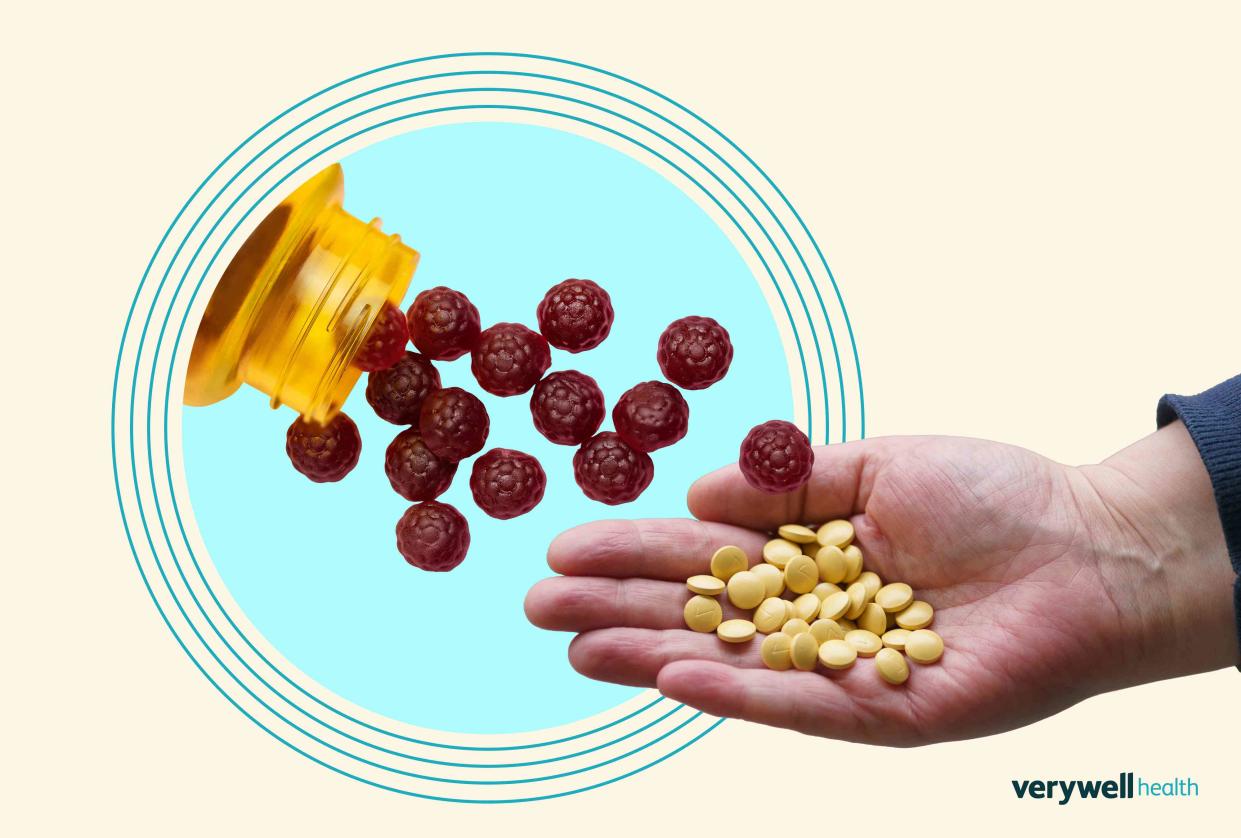How to Maximize Iron Supplement Absorption

Photo Illustration by Amelia Manley for Verywell Health; Getty Images
Fact checked by Nick Blackmer
Key Takeaways
Symptoms of iron deficiency include unexplained fatigue, weakness, shortness of breath, or pale skin, but a blood test is the only way to confirm deficiency.
Taking the supplement on an empty stomach, at least 30 minutes before a meal or two hours after a meal, is a common recommendation to enhance absorption, and vitamin C can also help your body absorb iron better.
Certain substances, such as polyphenols, phytates, and tannins, can hinder iron absorption.
It’s estimated that 1.2 billion individuals have iron deficiency globally, and iron supplements are the most efficient way to boost iron levels.
There are certain steps you can take to ensure you’re maximizing iron absorption and getting the most benefit from your supplement.
Healthcare providers will typically recommend iron supplements if you have confirmed low iron levels through a blood test and if you have symptoms like fatigue, weakness, shortness of breath, or pale skin, according to Menka Gupta, MD, a functional medicine practitioner at Nutranourish Clinic in Singapore.
Women who are iron deficient, especially those of childbearing age, may experience additional symptoms related to their menstrual cycle, such as heavy or irregular periods, Gupta said. Those who exercise regularly, especially intense or endurance training, may need increased iron due to higher red blood cell turnover and increased demand for oxygen transport, she added.
“Sometimes iron deficiency can also cause increased susceptibility to infections,” Gupta said. “If iron deficiency causes anemia, the individual may experience symptoms such as dizziness, headaches, and an irregular or rapid heartbeat.”
Related: 17 Iron-Rich Vegetarian Meals
The Best Way to Take Iron Supplements
It’s usually advised to take iron supplements on an empty stomach, Gupta said. This is because certain substances found in whole grains and dairy products, such as phytates and tannins, can hinder iron absorption. Research also shows that polyphenols, ingredients found in black and herbal tea, coffee, wine, legumes, cereals, fruit, and vegetables, can inhibit iron absorption.
“Taking iron 30 minutes before a meal or two hours after a meal is a common recommendation to optimize absorption,” she said.
Related: Can Drinking Tea Hinder Iron Absorption From Food?
Some research shows that vitamin C can enhance the absorption of nonheme iron, a type of iron found in plant-based foods and supplements, Gupta added.
Iron absorption can also be naturally increased through vitamin C-rich foods like oranges, strawberries, and bell peppers, she explained. Pairing iron-rich plant foods with heme iron sources found in meat, poultry, and fish can also optimize overall absorption. Whole grains and dairy products should be consumed separately from iron-rich meals.
Occasionally, iron supplements can cause side effects like abdominal pain, nausea, and constipation. But research suggests that taking the supplement on an alternate-day schedule instead of daily may reduce side effects.
Taking too much iron can be dangerous and lead to serious health issues such as liver damage, Gupta said. That’s why it’s always important to discuss with your healthcare provider to ensure you’re getting the right amount of iron.
Read Next: Your Body Might Not Absorb Iron Well From Plant-Based Meat
What This Means For You
If you are prescribed iron supplements, take them on an empty stomach either 30 minutes before a meal or two hours after a meal, and consider taking a vitamin C supplement or consuming vitamin C-rich foods to optimize your absorption.
Read the original article on Verywell Health.

